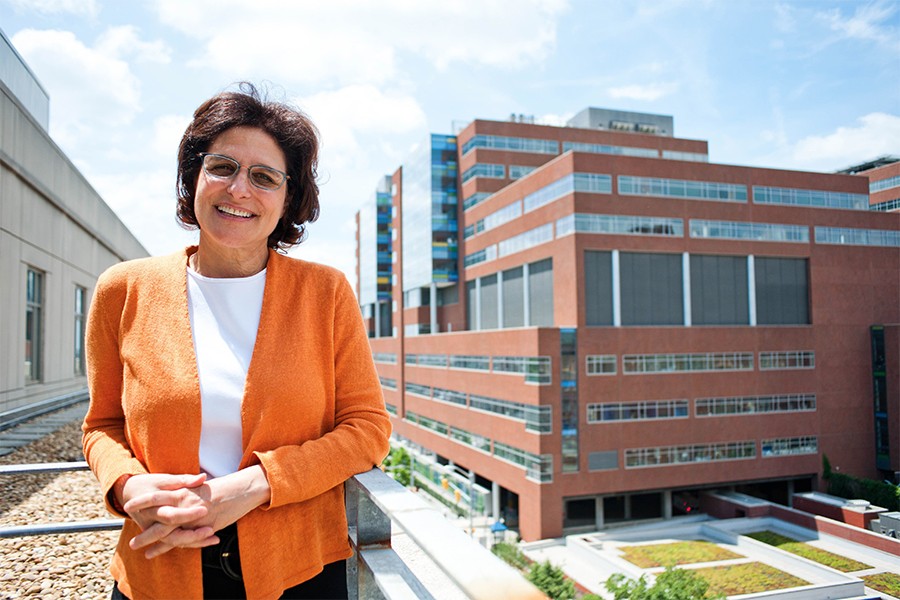When your child is a teenager, how do you want them to feel about themselves?
The answers from Baltimore parents invariably fall along the same lines: They want their kids to feel confident, respected, and capable. But when workshop leaders of the Baltimore branch of the Chicago Parent Program pose that question, the children haven't yet entered kindergarten.
"It helps parents think about how what they're doing right now is going to help build those feelings in their children 10 years from now," said Michelle Green, who guides sessions of the ChiPP Project in Baltimore.
The ChiPP Project is now active at nine Baltimore City public elementary schools where more than 90 percent of the families are classified as low-income. At each school, groups of about 10 parents—mostly mothers, but sometimes fathers or even grandparents—get together weekly to talk candidly about their challenges and successes in raising young children.
The model has been tested in Baltimore for several years, starting as a city-run pilot. In mid-2014, a batch of grants helped the Johns Hopkins School of Nursing take the reins. That move made particular sense because Deborah Gross, a professor at JHU's School of Nursing, was one of the Chicago Parent Program's original founders at Rush University in 2002.
The program was designed to fill a specific void. While most parenting training models are "very white and middle-class," Gross says, this one would be structured for urban families in low-income communities. An advisory board of mostly Latino and African-American parents helped "create a program that could be most relevant to them," Gross says.
The strategy is to reach parents with kids in the 2- to 5-year-old range, with consistent research showing that's the most critical age to intervene in mental health, says Gross, a child psychiatric nurse.
The 12-week program is structured around video vignettes depicting different scenarios—like a kid having a tantrum at a laundromat, or a parent struggling to enforce bedtime. The idea is to stimulate conversation and problem-solving among the parents, with two trained facilitators guiding.
The honesty of these conversations often brings parents a sense of relief, says Andrea Downing, a social worker who has led Baltimore groups for two years. She often hears parents say: "I feel like I'm not the only one anymore."
Fourteen years after its start, more than a dozen agencies and universities across the country have adopted the Chicago Parent Program, including in Washington D.C. and New York's Harlem neighborhood. In Baltimore, the ChiPP Project—directed by Amie Bettencourt, a child psychologist who studied at JHU's Bloomberg School of Public Health—has support from six local private foundations.
The team, which also involves the Baltimore Education Research Consortium, is trying new strategies for the program.
One of the possible strategies is monetary incentives to attend. Parents receive a debit card that gives them $15 for each two-hour session attended, with other rewards for completing homework.
"We're seeing a big difference with participation rates," Gross says, with parents usually spending the money on essentials like food or clothes.
This year the team is also offering a pilot project for military families at Fort Meade, via Johns Hopkins Medicine's Odenton pediatric clinic.
Downing, who helps lead that parent group, says it's a different culture with different challenges. She says the military families often seem to be looking for "confirmation" that what they're doing is right, while in Baltimore there's more of a sense of trying out new approaches.
Because the Chicago Parent Program was originally designed for and with families in low-income communities, it diverges from some classic parenting philosophies.
"What makes the program different is how it addresses common issues like spanking and limiting praise," Gross says, pointing to both as common strategies parents use to help "toughen" their kids for survival.
Anecdotes and research are showing that the Chicago Parent Program works. In Baltimore, 100 percent of the parents in ChiPP are reporting through surveys that they'd recommend the program to a friend or relative. They're also seeing marked improvements with their kids. At the start of the program, nearly half of the participating children demonstrate clinically significant problems, according to Gross' team. By the end of 12 weeks, that number drops to 17.6 percent.
The researchers are also interested in following the long-term outcomes for the kids, looking at factors like attendance, grade progression, and suspensions throughout elementary school.
Now about halfway through its three-year grant cycle, the ChiPP Project plans to expand to more schools next year. Ultimately, the goal is to see the program become a permanent, sustainable feature in Baltimore.
"We're trying to look at, how do you keep a program like this embedded?" Gross says. "Our long-term goal is to improve the lives of families with young children in Baltimore."
Posted in Politics+Society, Community
Tagged community, child development, parenting










